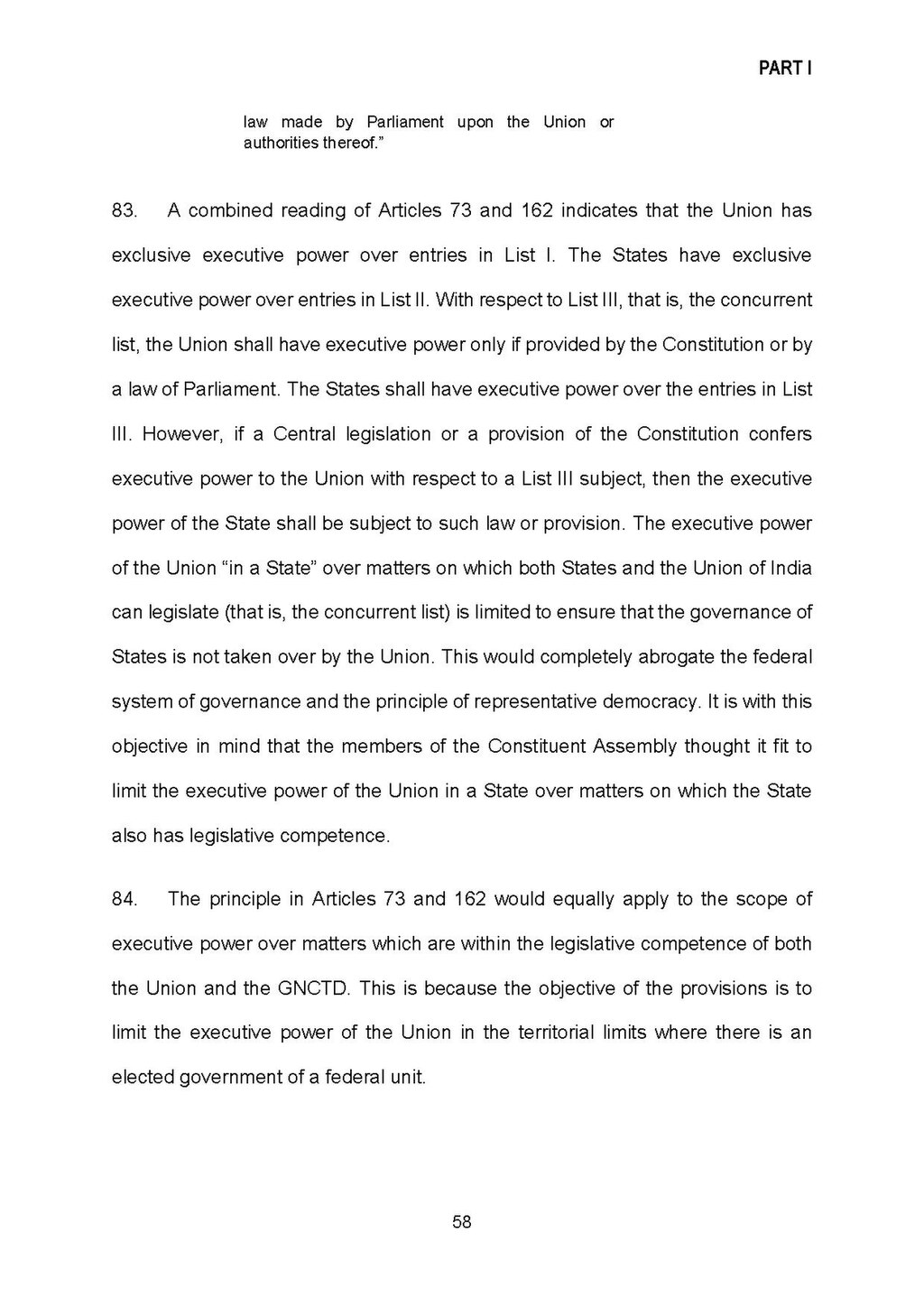law made by Parliament upon the Union or authorities thereof.”
83. A combined reading of Articles 73 and 162 indicates that the Union has exclusive executive power over entries in List I. The States have exclusive executive power over entries in List II. With respect to List III, that is, the concurrent list, the Union shall have executive power only if provided by the Constitution or by a law of Parliament. The States shall have executive power over the entries in List III. However, if a Central legislation or a provision of the Constitution confers executive power to the Union with respect to a List III subject, then the executive power of the State shall be subject to such law or provision. The executive power of the Union “in a State” over matters on which both States and the Union of India can legislate (that is, the concurrent list) is limited to ensure that the governance of States is not taken over by the Union. This would completely abrogate the federal system of governance and the principle of representative democracy. It is with this objective in mind that the members of the Constituent Assembly thought it fit to limit the executive power of the Union in a State over matters on which the State also has legislative competence.
84.The principle in Articles 73 and 162 would equally apply to the scope of executive power over matters which are within the legislative competence of both the Union and the GNCTD. This is because the objective of the provisions is to limit the executive power of the Union in the territorial limits where there is an elected government of a federal unit.
58
